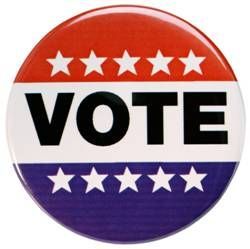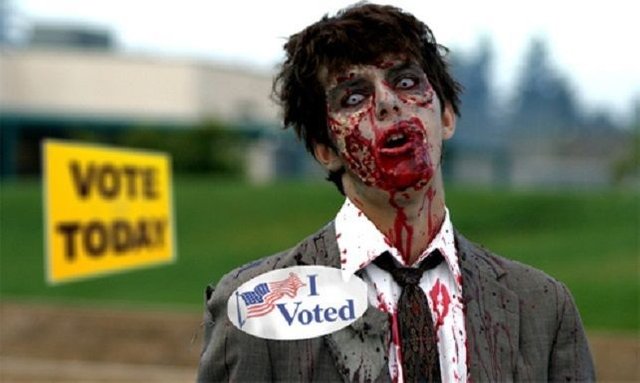If you don't vote, you can't complain! Really?

Quite the opposite I'd say! I've heard people telling me I can't complain about government because I don't vote and I often wonder if they know what they are saying or just regurgitating some buzz-phrase they have seen on TV.
I'll put this very simply for any voters out there who plan on using this phrase again: not voting is the ONLY thing that allows me to complain.
If you vote for a party and it gets into power, you cannot complain because you gave them your permission to laud authority over you so you reap what you sow. If they start (as inevitably they will) breaking campaign promises and creating policy you disagree with, then tough. You created this monster with your mindless ceremonial voting card, so you deal with the consequences!

If you voted for a party and they didn't get into power then you still have no right to complain. You were happy to have your party impose their will onto the entire country, whether they liked it or not and by doing so you lost any moral high ground.
No, the only way to have impartiality and true moral standing in terms of politics is DO NOT VOTE.
If you think your vote will change anything, you are wrong. If you want to protest vote against a candidate, you are simply feeding the monster. The system is rigged folks!
The moral reason not to vote is simple: by voting you are delegating the right to a small group of people (government) to impose their will upon the entire nation BY FORCE.
Would you force someone to do your will and call it moral? No? Well then why would you think it's moral to ask other people to do it for you?

Government is, by definition, COERCIVE and to participate in the system that government feeds from is immoral.
Without knowing it, every voter is committing violence against the rest of the country. If you are a voter I want you to seriously consider whether you personally would commit violence against your neighbour if they didn't do what you wanted them to do, and ask yourself, should I be asking other people to do that on my behalf?
Um. This is fundamentally wrong on all accounts.
You are under the misconception that a voter is required to vote for a party, not an individual. As such, you fail to understand the reality of voting. You vote for an individual based on their merits and their intentions. Sometimes their public intentions are not the same as their private intentions, but you typically can't predict that so that's not your problem until the next time you're able to vote for that position. At that point in time, it is now your obligation / civic duty to vote for someone different! (unless you decide that you prefer this person's private intentions).
So to sum up: Not Voting means you have ZERO right to complain.
If you want to make a difference in this world, the world is not going to succumb to your will. YOU need to ACT.
If there are no valid or proper candidates available, YOU could be that valid or proper candidate.
If you don't want to be that candidate, then, again, you have zero right to complain.
ACT or Do Not Act. Those are your choices. If you Choose Not to Act, then you Choose Not to Complain because Your Actions indicate that you do not care enough to act. If you do not care enough to act, you should not care enough to complain. If you care enough to complain, you should care enough to act.
/rant
Hi, thanks for the response. I understand your position but disagree. I will ask you five questions and please answer honestly:
1) Is there any means by which any number of individuals can delegate to someone else the moral right to do something which none of the individuals have the moral right to do themselves?
2) Do those who wield political power (presidents, legislators, etc.) have the moral right to do things which other people do not have the moral right to do? If so, from whom and how did they acquire such a right?
3) Is there any process (e.g., constitutions, elections, legislation) by which human beings can transform an immoral act into a moral act (without changing the act itself)?
4) When law-makers and law-enforcers use coercion and force in the name of law and government, do they bear the same responsibility for their actions that anyone else would who did the same thing on his own?
5) When there is a conflict between an individual's own moral conscience, and the commands of a political authority, is the individual morally obligated to do what he personally views as wrong in order to "obey the law"?
I ask these because they illustrate the hypocrisy of government. You cannot ask a group of people to commit violence in your name and call it moral. I opt to not participate in an intrinsically immoral system.
Also, I think you didn't quite understand the post. I was saying that if you give someone authority to make decisions for you, then you have no right to complain about it as you have abdicated responsibility to them.
I will be interested to hear your answers to the above questions.